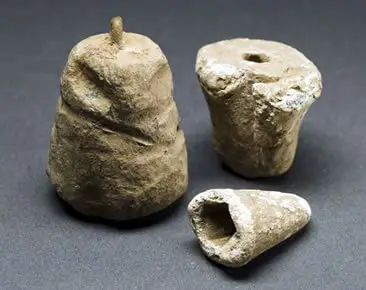To ascertain something; to deduce from the facts.
Fathom out
What's the meaning of the phrase 'Fathom out'?
What's the origin of the phrase 'Fathom out'?
A fathom is one of those units of linear measurement that we learned at school (at least we did when I was at an English grammar school in the 14th century) and now can’t quite remember just what length they refer to. There’s the furlong (a ‘furrow long’, or the length of a medieval field – about 220 yards), the rod or pole or perch (all the same measurement – of five paces), the cubit (from the elbow to the fingertips). These peculiarly named units are matched in their imprecision by the fathom, which is the span encompassed by the outstretched arms from fingertip to fingertip – about six feet. Naturally, not everyone’s arms were the same length and so the fathom wasn’t an agreed distance. The woolliness over the definition of the term is illustrated in Ephraim Chambers’ Cyclopædia, 1728:
There are three kinds of Fathoms. The first, which is that of Men of War, contains six Feet: The middling, or that of Merchant Ships, five Feet, and a half; and the small one, used in Fluyts, Flyboats, and other Fishing-vessels, only five Feet.
When we say that we fathom something now we mean that we grasp or understand it. In the Middle Ages to fathom something was, in keeping with the literal ‘fingertip to fingertip’ meaning of the word, to encircle it with the arms. From the 14th century onward, people who embraced each other were said to be fathoming. That meaning has now fallen out of use, which at least spares us from daily ‘fathom and tell’ stories in our tabloid newspapers.
‘Fathoming out’ refers to measuring by using the outstretched arms, a usage that dates back to at least the 16th century; for example, this piece from Richard Eden’s The Decades of the Newe Worlde, 1555:
Seuen men… with theyr armes streached furthe were scarsely able too fathame them [trees] aboute.
As time went by ‘to fathom’ began to mean ‘to get to the bottom of’ or ‘to take soundings about’. This probably derives from the most commonly believed derivation of ‘fathoming out’, which is the measuring of the depth of water beneath a ship by use of a weight fixed to a rope marked out in fathoms. This ‘sounding out‘ was known both literally and figuratively by the early 17th century; for example, this literal usage, recorded in Sir William Brereton’s Travels in Holland, 1634:
Fathoming the depth of the water over against Brill, we found it there where the buoys are placed to warn all seamen of the danger of that passage, that we had not above two feet more water than the ship drew.
Philip Massinger’s comic play A New Way to Pay Old Debts, 1633, makes a figurative use of ‘fathoming’, that is, a usage that makes no explicit reference to distance but which moves the meaning of ‘fathoming’ from ‘getting the measure of’ to ‘understanding’:
The Statesman beleeues he fathomes The counsels of all Kingdomes on the earth.
Fathoms are so strongly associated with seafaring that it seems unnecessary to look any further than the nautical measurement as the source of ‘fathom out’, especially as this form of measuring was still commonplace when the term was coined.
See also: swing the lead and other nautical phrases.
The history of “Fathom out” in printed materials
Trend of fathom out in printed material over time
Related phrases and meanings
Browse more Phrases
About the Author

Phrases & Meanings
A-Z
A B C D E F G H I J K L M N O P Q R S T UV W XYZ
Categories
American Animals Australian Bible Body Colour Conflict Death Devil Dogs Emotions Euphemism Family Fashion Food French Horses ‘Jack’ Luck Money Military Music Names Nature Nautical Numbers Politics Religion Shakespeare Stupidity Entertainment Weather Women Work
How did we do?
Have you spotted something that needs updated on this page? We review all feedback we receive to ensure that we provide the most accurate and up to date information on phrases.
